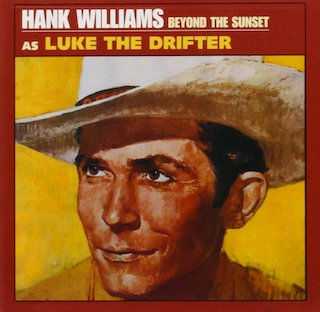Related Research Articles
"Ramblin' Man" is a song written in 1951 by Hank Williams. It was released as the B-side to the 1953 number one hit "Take These Chains from My Heart", as well as to the 1976 re-release of "Why Don't You Love Me". It is also included on the 40 Greatest Hits, a staple of his CD re-released material.
"Men with Broken Hearts" is a song written and recorded by Hank Williams under the pseudonym "Luke the Drifter." It was released on MGM Records in 1951.
"My Heart Would Know" is a song written and recorded by Hank Williams. It was released as the B-side to "Hey Good Lookin'" in June 1951 on MGM Records.
"You're Gonna Change " is a song written by Hank Williams. It was released as a single on MGM Records in September 1949 and reached #4 on the Best Selling Retail Folk Records chart.
"I'll Be a Bachelor 'Til I Die" is a song written and recorded by Hank Williams on MGM Records.
"May You Never Be Alone" is a song written and recorded by Hank Williams. It was released as the flipside of "I Just Don't Like This Kind of Living" in January 1950.
"Why Should We Try Anymore" is a song written by Hank Williams and released as a single on MGM Records in 1950.
"Dear John" is a song written by Tex Ritter and Aubrey Gass. It is best remembered for being the A-side to Hank Williams' number one hit "Cold, Cold Heart" in 1951 for MGM Records.
"Let's Turn Back the Years" is a song written and originally recorded by Hank Williams for MGM Records.

Hank Williams as Luke the Drifter is an LP by Hank Williams released by MGM Records in 1954. It features narrations that Williams released under the pseudonym Luke the Drifter.
Pictures from Life's Other Side" is a traditional song popularized by Hank Williams under the pseudonym "Luke the Drifter." It was released on MGM Records in 1951.
"The Funeral" is a song credited to Hank Williams with words from Will Carleton. It was released as a single under the pseudonym Luke the Drifter by MGM Records in 1950.

"Just Waitin" is a song written by Hank Williams and released as the A-side of "Men with Broken Hearts" in 1951 on MGM Records. It was released under the pseudonym "Luke the Drifter."
"Beyond the Sunset" is a song written by Blanche Kerr Brock, Virgil P. Brock, and Albert Kennedy Rowswell. It was released as a single by Hank Williams under the pseudonym Luke the Drifter in 1950.

"Too Many Parties and Too Many Pals" is a song released by Hank Williams under the pseudonym Luke the Drifter. The song dates back to at least 1926 when it was recorded by a number of artists including the Bar Harbor Society Orchestra. It had also previously been recorded and released in 1948 by Bill Haley as Bill Haley and the 4 Aces of Western Swing; this was Haley's first professionally released single.
"No, No, Joe" is a song by Hank Williams. It was written by Fred Rose and takes aim at Soviet leader Joseph Stalin.
"Please Make Up Your Mind" is a song written and recorded by Hank Williams and released as a "Luke the Drifter" single in 1952.

"A Home in Heaven" is a hymn written by Hank Williams and recorded as a duet with his wife Audrey Williams. It was released as a single on MGM Records in 1956.
"Lost on the River" is a song written by Hank Williams. It was released as a duet with his wife Audrey Williams on MGM Records in 1950.
"I've Been Down That Road Before" is a talking blues song by Hank Williams. It was released by MGM Records under the name "Luke the Drifter", which was a pseudonym for Hank's recitations. It was another dose of the sage advice that Luke the Drifter seemed endlessly capable of dispensing - and Hank Williams seemed just as capable of ignoring. Biographer Colin Escott calls it "perhaps the most directly biographical song he ever wrote, and leaves us guessing at the incidents that inspired it." He recorded it in Nashville on June 1, 1951 with Fred Rose producing and backing by Jerry Rivers (fiddle), Don Helms, Sammy Pruett, Jack Shook, Ernire Newton or "Cedric Rainwater", aka Howard Watts (bass), and possibly Owen Bradley (organ).
References
- ↑ "Hank Williams 78rpm Issues". jazzdiscography.com. Retrieved 2021-09-23.
- ↑ Escott, Colin (2004). Hank Williams: The Biography. Back Bay. p. 149. ISBN 0-316-73497-7.
- ↑ Escott, Colin (2004). Hank Williams: The Biography. Back Bay. p. 366. ISBN 0-316-73497-7.